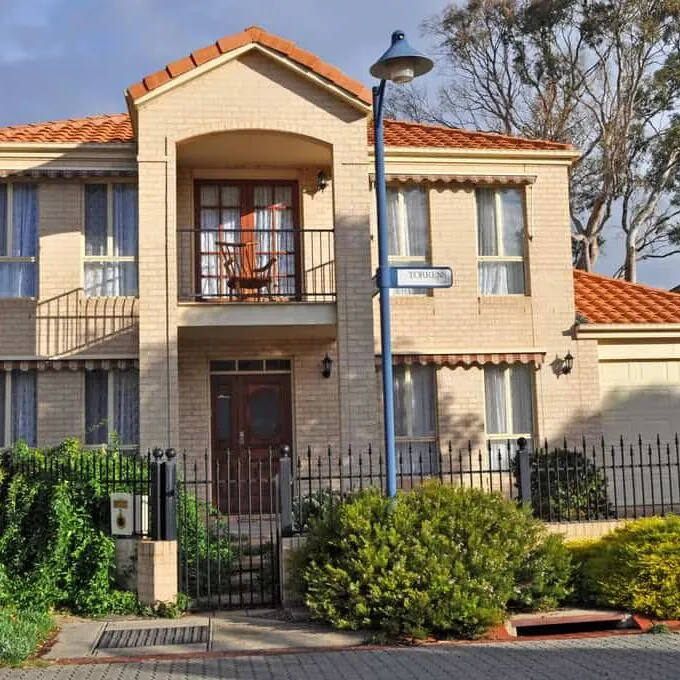The idea of owning a second home can be incredibly appealing. It could be a holiday house or an investment property that can generate additional income. But is buying a second home the right decision for you? Let’s explore the key considerations and steps involved in purchasing a second property in Australia. Top Reasons for […]
Fixed vs Variable Rate: Which Should You Get When Refinancing?
Refinancing presents a unique opportunity to reassess your financial situation and secure better terms for your mortgage. But as you take this opportunity, you’ll have to make a choice between a fixed and variable rate for your new home loan. Each option comes with its set of advantages and considerations, and understanding the differences can empower you to make an informed choice that aligns with your financial goals. We explore the fixed vs variable rate showdown and share practical tips to help you make the best financial decision.
Understanding Fixed-Rate Loans
Fixed-rate home loans bring a sense of security and stability to your financial journey. Imagine having the reassurance of a constant interest rate that remains steady over a set period, usually ranging from one to five years. No matter how the market fluctuates, your interest rates and monthly loan repayments will remain unchanged. In turn, you can budget your monthly expenses with confidence and ease.
Pros of Fixed-Rate Home Loans
- Certainty and stability: With fixed rates, you know exactly how much you’ll repay each month. That means peace of mind and help with budgeting.
- Protection against rate hikes: If market rates rise, your fixed-rate mortgage remains unaffected, safeguarding you from potential interest rate increases.
- Long-term planning: Fixed rates are suitable for borrowers who prefer predictable repayments and are planning for the long term. If you believe rates may increase in the future, locking in a fixed rate means you can avoid any rate hikes during the fixed term.
Cons of Fixed-Rate Mortgages
- Limited flexibility: Fixed-rate loans may come with fewer features and less flexibility compared to variable-rate mortgages, potentially limiting your ability to make extra repayments or access redraw facilities.
- Break costs: If you decide to pay off your loan early during the fixed term (including refinancing), break costs may apply, and these costs can be substantial.
- Miss out on interest rate reductions: While a fixed rate keeps your interest rate stable, protecting you from rate rises, if market interest rates are reducing, your fixed rate remains the same, meaning you miss out on any interest expense reductions.
Exploring Variable-Rate Loans
Opting for a variable-rate home loan introduces you to the dynamic world of interest rates, where your journey intertwines with the fluctuations of the official cash rate and market conditions. As a result, your monthly repayments may sway over time, mirroring the current pulse of market interest rates. While variable rates might entice you with lower starting points compared to fixed rates, they have the power to rise or fall during the loan term, influencing your budget and cash flow.
Pros of Variable-Rate Home Loans
- Potential cost savings: Variable rates may start lower than fixed rates, potentially leading to cost savings during periods of low-interest rates. That can be beneficial if you believe rates may decrease in the future.
- Additional features: Variable-rate loans often offer more flexibility and additional features, such as redraw facilities and offset accounts. Such features allow you to optimise your savings and reduce the interest you pay over time.
- Lower exit fees: Variable-rate loans do not come with the break fees that fixed rate loans have, making them more suitable for borrowers who may sell their property in the near future, or those looking to refinance.
Cons of Variable-Rate Loans
- Uncertainty: Variable rates are subject to market fluctuations. This uncertainty can create budgeting challenges, as your monthly repayments may change over time.
- Risk of rate increases: If interest rates rise during the loan term, your repayments will increase. That can impact your overall financial planning.

Fixed vs Variable Loan: Top Considerations for Refinancing
Trying to settle the fixed vs variable rate showdown when refinancing your existing home loan? Consider the following factors:
Your Financial Goals
Assess your financial objectives and how refinancing fits into your overall financial strategy. Determine if stability and predictability (offered by fixed rates) or potential cost savings and flexibility (provided by variable rates) align better with your goals.
Economic Outlook
Stay informed about economic conditions and interest rate forecasts. While no one can predict future rate movements with certainty, understanding economic trends can give you insights into potential interest rate changes during the loan term.
Risk Tolerance
Evaluate your comfort level with interest rate fluctuations and your ability to manage potential rate increases. If you prefer the security of knowing your repayments will remain constant, a fixed rate might be a better fit. If you are fine with some level of uncertainty and think rates may decrease, a variable rate could be more suitable.
More Tips for Making the Right Decision
Still can’t decide about getting a fixed-rate or variable-rate home loan for refinancing? We’ve got more tips to help you nail down your choice.
- Take a Closer Look at Your Financial Situation: Take a closer look at your income, expenses and future financial goals as you navigate this crucial decision between fixed and variable rates. This introspective evaluation will guide you towards the refinancing loan type that perfectly aligns with your overall financial plan. Taking note of your surplus income can help you determine whether you have a large enough buffer to absorb any interest rate increases in the future.
- Consider Your Loan Term: The length of your refinance loan term can influence your rate decision. If you plan to repay your new mortgage over a short period, a fixed rate may offer more certainty during that time. For longer loan terms, a variable rate can provide flexibility in case of rate decreases.
- Hybrid Loan Options: Do you still find it hard to decide between fixed and variable rates? Consider hybrid or split loan options. This approach allows you to allocate a portion of your refinance loan to a fixed rate and the remaining portion to a variable rate, offering a combination of stability and flexibility.
- Review Loan Features: Scrutinise the features offered by fixed and variable-rate loans. Consider whether you need additional features like an offset account or a redraw facility, as these can play a significant role in reducing interest costs over time.
- Consult with a Mortgage Broker: Seek expert guidance from a reputable mortgage broker like Deltos Finance. A mortgage broker can assess your unique financial circumstances, compare loan options and guide you towards the most suitable refinancing solution in line with your needs.
Final Thoughts
Fixed vs variable rate? It’s a choice that can shape your financial future. While fixed rates provide certainty and protection against rate hikes, variable rates offer potential cost savings and added flexibility. By weighing the pros and cons of each option and applying practical tips, you can confidently navigate the refinancing process and secure the best possible terms for your unique circumstances.
Remember that each borrower’s situation is unique, so take your time to assess your options and select the loan type that aligns best with your financial aspirations. If you need expert guidance, don’t hesitate to get in touch with Deltos Finance today.
Enquire Now
Find Your Perfect Finance Solution
Let's discuss your finance needs. We’re here to help.
More posts from Deltos Finance

How to Use Equity to Buy Another Property
As a homeowner, you’re sitting on a valuable asset that can do more than provide a roof over your head. Your property’s equity can be a powerful financial instrument to help you buy a second home or expand your real estate portfolio. So, whether you’re dreaming of a holiday home by the beach near Carlton […]

What to Know About the Home Loan Approval Process
Understanding the home loan approval process and knowing what to do at each stage can make it less intimidating. Today we’ll guide you through the stages, including what to do before lodging your application, when to apply, important considerations, and the support and tools available to make the process smoother. Before You Apply: What You […]

Cash-Out Refinancing: Tapping into Home Equity
As a homeowner in Australia, you may have built up significant equity in your property over the years. But did you know you can tap into this equity to access cash for various financial needs? This is where cash-out refinancing comes into play. In this article, let’s explore what cash-out refinancing is, how it works, […]

No More Stamp Duty: Tasmania’s Gift to New Homeowners
Imagine stepping into your first home without the burden of thousands of dollars in stamp duty. Sounds too good to be true? Well, for Tasmanian first-home buyers, this dream has now become a reality. The Tasmanian government has just delivered a game-changing gift that could save you up to $28,945 on your first home purchase. […]

The Australian Shared Equity Scheme Explained
These days, it’s not easy to break into the property market. That’s especially true for young and first-time homebuyers who encounter several obstacles, especially amidst rising inflation and interest rates. But don’t fret because there are ways to make homeownership more accessible and affordable. One of which is shared equity. The Australian shared equity scheme […]

Let’s Talk About Rentvesting in Australia
You might find the traditional path to homeownership challenging, especially with rising property prices in desirable areas. Plus, it usually takes an average Australian over five years to save for a home loan deposit for a median-priced residential property. Enter rentvesting—a strategic approach for getting a foot on the property ladder without compromising your lifestyle. […]

Redraw vs Offset: Which Should You Choose for Your Home Loan?
When taking out a home loan, you might focus too much on comparing rates and terms. We’re here to remind you to explore different home loan features before signing the dotted line. Two popular options that can help you save on interest and pay off your mortgage faster are redraw facilities & offset accounts. But […]

Let’s Talk About the Expanded First Home Guarantee Eligibility
Have you heard of the First Home Guarantee scheme? Did you know its eligibility has expanded to include more aspiring homeowners who previously faced barriers to entry into the property market? Today, let’s talk about the expanded First Home Guarantee eligibility to help you know whether you can maximise this scheme. A Refresher: What Is […]

The First-Home Buyers 5% Home Loan Deposit Scheme Explained
As a first-time home buyer in Australia, one of the biggest hurdles you’ll face is coming up with a substantial deposit. Traditionally, lenders have required a deposit of at least 20% of the property’s value, but what if you could secure your dream home with just a 5% deposit? That is possible through the First […]


